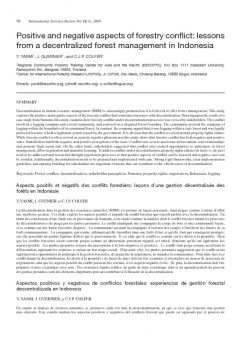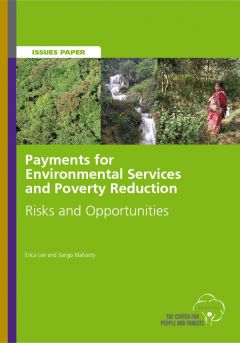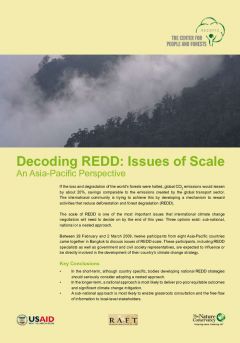Location
RECOFTC
RECOFTC is derived from an abbreviated form of the organization's legal name, Regional Community Forestry Training Center for Asia and the Pacific. Formerly the organization was known as RECOFTC – The Center for People and Forests.
RECOFTC – The Center for People and Forests is an international not-for-profit organization that focuses on capacity building for community forestry in the Asia Pacific region. It advocates for the increased involvement of local communities living in and around forests - some 450 million people in Asia-Pacific - in the equitable and ecologically sustainable management of forest landscapes.
The Regional Community Forestry Training Center for Asia and the Pacific (RECOFTC) opened in Bangkok, Thailand, in March 1987 with support from the United Nations Food and Agriculture Organization, the Government of Switzerland (through the Asian Development Bank), and Thailand's Kasetsart University.
Community forestry is widely acknowledged as a powerful solution for many of the challenges facing local people and the wider society, especially in improving rural livelihoods, enhancing community governance and empowerment, transforming forest-related conflict, protecting and enhancing the environment, and helping to fight climate change. As a capacity-building organisation, RECOFTC improves the ability of people and organisations to conduct community forestry effectively and sustainably.
RECOFTC works toward its mission through four thematic areas:
- expanding community forestry
- people, forests and climate change
- transforming forest conflict
- securing local livelihoods.
Members:
Resources
Displaying 416 - 420 of 485Positive and Negative Aspects of Forestry Conflict: Lessons From Decentralized Forest Management in Indonesia
Decentralization in natural resource management (NRM) is increasingly promoted as it is believed to offer better management. This study explores the positive and negative aspects of the forestry conflict that sometimes increases with decentralization. Drawing upon the results of a case study from Sumatra, this study examines how forestry conflict under decentralization processes was viewed by stakeholders. The conflict involved a logging company and a local community, and centered on a disputed forest boundary.
Payments for Environmental Services and Poverty Reduction: Risks and Opportunities
Should market efficiencies or social objectives drive the design of Payment for Environmental Services (PES) schemes?
This issues paper challenges the notion that markets should solely drive PES schemes, given the emerging evidence of how PES can impact the livelihoods of the rural poor. Blindness to social welfare can fuel the very real risk of adverse social outcomes, and result in missed opportunities to improve the circumstances and opportunities of the rural poor.
Decoding REDD: Issues of Scale
The scale of REDD is one of the most important issue being discussed in the ongoing REDD debate. Three options exist: national, sub-national and a nested approach. Between 28 February and 2 March 200, twelve participants from eight Asia-Pacific countries came together in Bangkok to discuss issues of REDD scale. This brief synthesizes their opinions.
Forest and Poverty Data in Vietnam: Status, Gaps, and Potential Uses
In Vietnam, the lack of quality data in the forestry sector has been an obstacle to institutional reflection and effective policy formulation. This study analyzes the status and gaps of this data, and its implications for addressing poverty in Vietnam.
Forest and Poverty Data in Vietnam: Status, Gaps, and Potential Uses
In Vietnam, the lack of quality data in the forestry sector has been an obstacle to institutional reflection and effective policy formulation. This study analyzes the status and gaps of this data, and its implications for addressing poverty in Vietnam.





